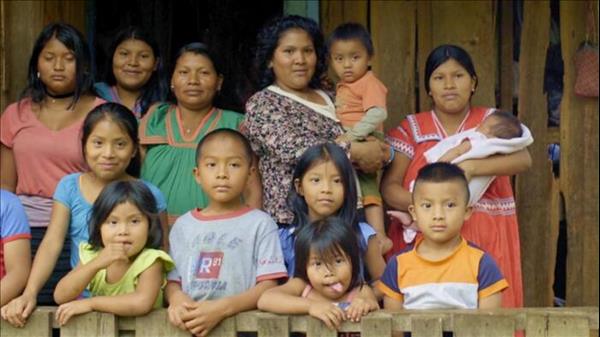(MENAFN- Costa Rica News) --a-The representatives of the Coordinadora de la Lucha Sur Sur , folder in hand and with each of the documented cases, denounced before the Special Permanent Commission on Human Rights , the violations to which they have been subjected, in recent years, not only by individuals, but by the Costa Rican State itself.
Those who came to denounce the problem were Gustavo Oreamuno, defender of human rights and the Coordinator of the South-South Struggle; Lesner Figueroa and Roger Delgado representing the Bribri de Salitre territories and Geison Ríos from the Cabecar territories.
The indigenous Lesner Figueroa was the first to take the floor and expose what they consider the violation of their rights by some people, but mainly by the State that ignores the cosmogony, form of organization, spirituality and the customary law that governs the native peoples.
Have to know their customs Figueroa insisted that the government appoint representatives to address the problems of the indigenous people, without them knowing anything about their customs.
He gave as an example that there is talk that they are not organized and that is not true, they have an excellent, firm and stipulated organization, almost ancestral, at least in the Bribri community, however, the organization was imposed on them through the associations of development, which has been“brainwashing” many of their peers.
National Plan for the Recovery of Indigenous Territories Regarding the National Plan for the Recovery of Indigenous Territories, RTI, prepared by the Rural Development Institute, INDER, for the recovery of land in indigenous areas that are in the hands of whites, the human rights defender Gustavo Oreamuno , assured that not even a step has been advanced.
He explained that they are not asking for the occupants to be evicted in one full swoop, but they do want the government to show some support and move forward, expropriating at least one or two of the lands that were indicated by each indigenous group.
“If the State did its job, which is to comply with the law, I am sure that there would be no violence because, just as we have rights, non-indigenous people also... unfortunately they always see us (as) the poor thing, the Indians, instead when talking about a non-indigenous issue it is money, people with money, economic power,” Figueroa argued.
Violence between indigenous people and whites Another of the most relevant points in this hearing is related to the problems of violence between indigenous people and whites, due to the occupation of land by the latter.
Deputy Jonathan Acuña Soto, from the Frente Amplio, made clear the differentiation that must be made between the people who must be compensated because their lands remained within the indigenous territories and those who simply must be evicted because what they did was invade territories, for which questions that those actions in which no money have not been complied with.
They made reference to the resolution of the Constitutional Chamber that indicates that“any non-indigenous person who entered after 1977 is an illegal squatter and in bad faith, therefore he has no right to any compensation.”
A motion was approved to receive the Nicaraguan refugee Claudia Vargas in audience, so that she may refer to the Executive Decree that introduces changes in the regulations for refugees and the effects that this may have.
In addition, a motion was approved so that Eduardo Robert Ureña, executive president, and Cindy Bravo, both from the INDER Rural Development Institute, be heard in order to refer to the progress in the indigenous land recovery program.
SourceTCRN STAFF ViaWilmer Useche



















Comments
No comment